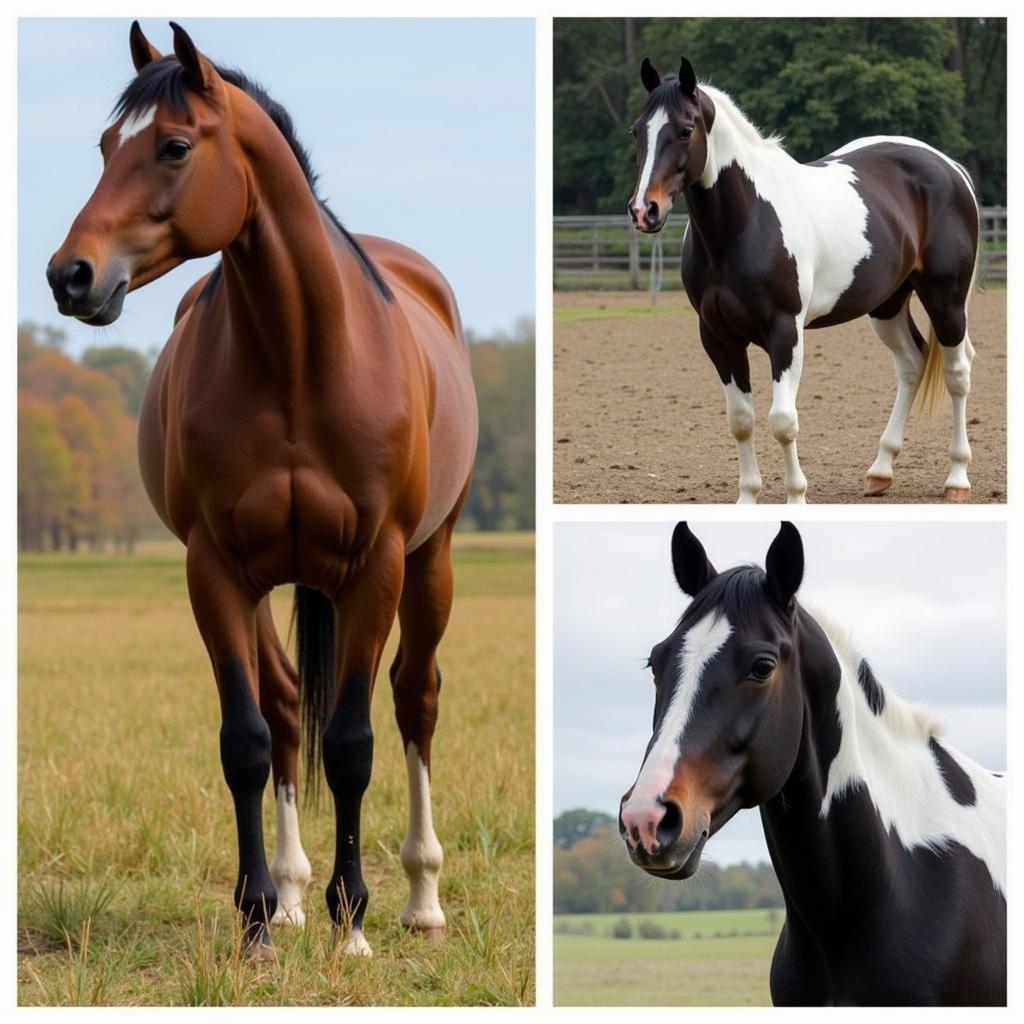The term “Pk Horse” doesn’t refer to a specific horse breed but is used within the equestrian community to describe horses exhibiting certain desirable traits. It typically refers to horses with exceptional athletic ability, often seen in disciplines like barrel racing, reining, and cutting. These horses may not belong to any particular breed but are chosen based on their performance and pedigree.
What Does PK Horse Stand For?
While the exact origin of the term “PK” is debated, it’s widely believed to stand for “performance key.” This emphasizes the focus on the horse’s athletic capability and proven track record, rather than their specific breed or lineage.
Characteristics of a PK Horse
While breed standards don’t apply to PK horses, they often share common characteristics that make them ideal for performance events. These include:
- Athleticism: PK horses are naturally athletic, possessing speed, agility, and stamina.
- Intelligence: They are known for their intelligence and trainability, quickly learning and responding to cues.
- “Cow Sense”: Many PK horses exhibit a natural instinct and ability to work cattle, making them suitable for disciplines like cutting and working cow horse.
- Strong Conformation: While conformation varies, most PK horses boast a sturdy build that supports their athletic endeavors.
Breeds Commonly Associated with the PK Label
While any horse demonstrating exceptional athleticism can be considered a “PK horse,” certain breeds are more commonly associated with this designation. These include:
- Quarter Horses: Known for their speed and agility, Quarter Horses are a popular choice for barrel racing and other rodeo events.
- Paints: Often exhibiting Quarter Horse bloodlines, Paints combine striking color with athleticism, excelling in various disciplines.
- Appaloosas: Recognized for their stamina and agility, Appaloosas are also favored for their unique spotted coat patterns.
 Variety of PK Horse Breeds
Variety of PK Horse Breeds
Finding a PK Horse
Finding the perfect PK horse involves careful research and consideration. Here are some key steps:
- Determine Your Discipline: Identify the specific discipline you want to pursue as this will guide your search for a horse with suitable skills.
- Attend Events: Observe PK horses in action at competitions and shows to get a better understanding of their abilities and temperament.
- Network: Connect with reputable breeders, trainers, and riders involved in your chosen discipline to gain valuable insights and recommendations.
- Consider Pedigree and Performance Records: Examine the horse’s lineage and past performance records to assess its potential and suitability.
- Schedule a Pre-Purchase Exam: Always have a veterinarian conduct a thorough pre-purchase exam to ensure the horse is healthy and sound.
Caring for Your PK Horse
Owning a PK horse comes with the responsibility of providing excellent care to support their well-being and athletic performance. This includes:
- High-Quality Nutrition: A balanced diet tailored to their workload is crucial. Consider supplementing with pumpkin for horses as a healthy treat.
- Regular Exercise: Maintain a consistent exercise routine to keep them physically and mentally stimulated.
- Proper Farrier Care: Regular hoof trimming and shoeing are essential to ensure sound movement.
- Dental Care: Schedule annual dental checkups and floatings to prevent dental issues that can affect their performance.
Conclusion
Choosing a “PK horse” means prioritizing performance and athleticism over breed standards. By understanding what the term signifies and carefully evaluating potential horses, you can find the perfect equine partner for your equestrian pursuits. Remember that providing exceptional care is paramount to ensuring your PK horse thrives both on and off the field.
FAQs
1. Can any horse be a PK horse?
Technically, any horse demonstrating exceptional athleticism and a strong performance record can be considered a “PK horse.” However, certain breeds are more commonly associated with this term due to their inherent athletic abilities.
2. Are PK horses more expensive?
The price of a PK horse can vary greatly depending on factors like age, training, pedigree, and performance history. Generally, horses with proven track records and desirable bloodlines command higher prices.
3. What disciplines are PK horses best suited for?
PK horses excel in disciplines requiring speed, agility, and athleticism, such as barrel racing, reining, cutting, and working cow horse.
4. Where can I find a reputable PK horse breeder or seller?
Attending breed-specific or performance horse events, networking with experienced riders and trainers, and researching online resources dedicated to your chosen discipline can help you find reputable breeders and sellers.
5. What should I look for when choosing a PK horse?
Consider your experience level, riding goals, and the horse’s temperament, conformation, pedigree, and performance record. A pre-purchase exam by a qualified veterinarian is also crucial.
For further reading, check out our article on horse mash recipe.
Have more questions? Don’t hesitate to contact us!
Phone: 0772127271
Email: [email protected]
Address: QGM2+WX2, Vị Trung, Vị Thuỷ, Hậu Giang, Việt Nam
We’re here to help 24/7!